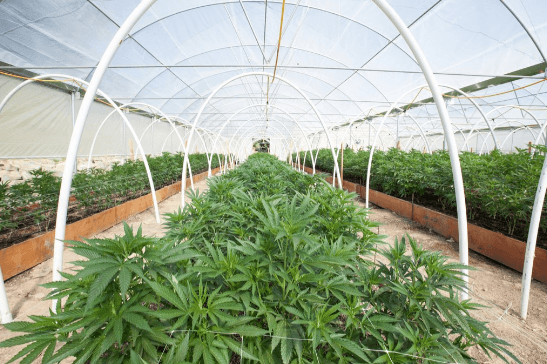Hemp is one of the oldest plants and possibly the world’s greatest agricultural crop, claimed to be first cultivated back in 8000 B.C. Although originally banned due to concerns regarding psychoactivity amongst other things, the re-legalization of hemp in the United States has allowed many to cultivate and produce the remarkable crop on a larger scale. In the last decade, the number of companies trading in and manufacturing hemp products has increased dramatically, and for good reason too. Unlike traditional crops, hemp requires much less water to grow and does a pretty good job preventing detoxifies and prevents the erosion of soil — all without pesticides — making it more environmentally friendly, a win-win for both farmers and consumers. And the advantages don’t stop there.
Where it’s legal, other potential uses are being developed within the hemp industry. More than just used for clothing, construction materials, paper, and biofuel, the hemp plant has also become a large application for health, offering just as much nutritional value as it does economically. Its seeds are highly nourishing, contain vitamins B, C, and E, protein, essential fatty acids, as well as calcium, iron, zinc — some of the most important minerals that the body cannot synthesize. Hemp, a non-intoxicating form of cannabis, isn’t policed in the same way as cannabis. So, just what kind of impact has the legalization of hemp had on the hemp-CBD industry? Well, thanks to US lawmakers, it just got really, really big. The current legal status of CBD (cannabidiol) may be unclear on a federal level, however, the Farm Bill signed into law by the President at the end of 2018, legalized the extraction of CBD from hemp — a species of cannabis that isn’t psychoactive.
According to the Grand View Research, the entire hemp market will be worth somewhere around $10.6 billion by the year 2025. However, for hemp derived-CBD (containing less than 0.03 THC), it’s believed to grow nearly twice that amount by 2022. It’s clear that the legalization of hemp has not only created increased access to CBD, but it has also opened more doors for further research on its purported therapeutic benefits. Available in everything from teas, pet treats, skin care products, vitamin supplements, and shampoos, proponents of the cannabinoid claim it works wonders for the following, but not limited to anxiety, chronic pain, seizure disorders, insomnia, appetite loss, inflammation, and others.
Perhaps the best thing about the hemp-derived CBD business is that it doesn’t necessarily correlate with the rest of the world or stock market. It’s going up regardless. Hemp has done a lot for CBD and with new legislation, it will continue to. We hope that soon, the CBD food and supplement industry will move towards the distribution of hemp-derived CBD products globally under new protections contained in the 2018 Farm Bill.










